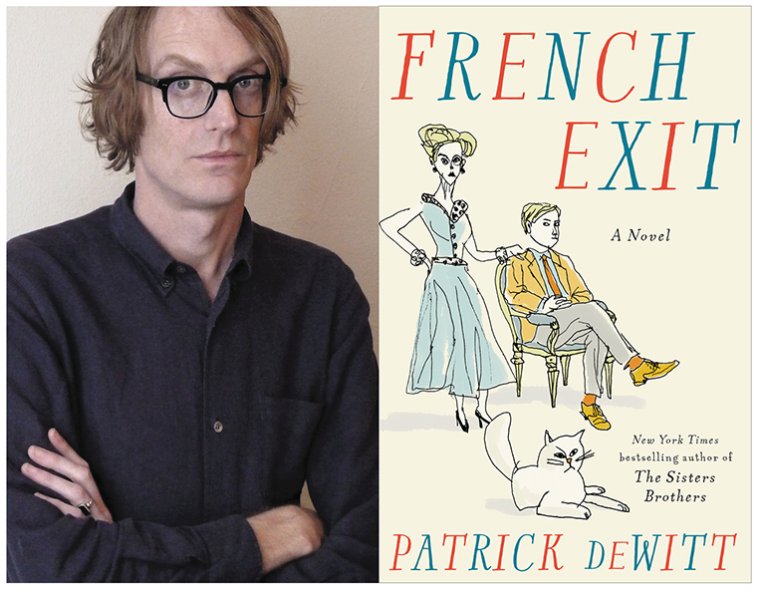This week’s installment of Ten Questions features Patrick deWitt, whose new novel, French Exit, is out today from Ecco. The darkly comic novel follows the once-wealthy Frances Price, a widow on the brink of bankruptcy, and her maladjusted adult son, Malcolm, who flee New York City’s Upper East Side for Paris in the face of social and economic ruin. With an eccentric cast of supporting characters—including a cat named Small Frank, who Frances believes is possessed by her late husband, an infamous litigator and cad whose scandalous death made tabloid headlines—French Exit is both a satiric send-up of high society and a wilding mother-son caper. Patrick deWitt is the author of Ablutions: Notes for a Novel and the novels Undermajordomo Minor and The Sisters Brothers, which was shortlisted for the 2011 Man Booker Prize and whose film adaptation, starring John C. Reilly and Joaquin Phoenix, premiers next month at the Venice Film Festival. Born in British Columbia, Canada, deWitt currently resides in Portland, Oregon.

Patrick deWitt, author of French Exit. (Credit: Kelly Reichardt)
1. Where, when, and how often do you write?
Twice daily, morning and night, in my office, in my home in Portland, Oregon.
2. How long did it take you to write French Exit?
A year for the rough draft.
3. What has been the most unexpected thing about the publication process?
The general loveliness of the people working in publishing. I had anticipated a much colder, dog-kill-dog landscape.
4. Where did you first get published?
In a magazine called the Minus Times.
5. What are you reading right now?
Under the Net by Iris Murdoch.
6. Who is the most underrated author, in your opinion?
Stephen Millhauser is beloved, but his books should be given free of charge to every interested citizen.
7. What is one thing you’d change about the literary community and/or the publishing business?
I’m for an industry-wide ban on the blurb.
8. What are the biggest impediments to your writing life?
The relentlessly horrific details of contemporary life. People.
9. What’s one thing you hope to accomplish that you haven’t yet?
I want to write and direct a play, then tour it through small towns in North America.
10. When did you realize you wanted to be a writer?
I’d had a lingering hunch for a couple of years, but by the age of seventeen I knew I wanted to write novels, specifically.







